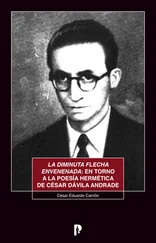She was one of the few that escaped the cerebral kiss. Block after block, the harvest advanced. The dead grew emboldened by their own efficiency. But because nothing is wholly predictable in human material, they came up against a couple of bizarre situations, which clashed with how bizarre they were. One such situation was at the Chalet de la Virgen, which from the outside looked just like any other house, with a little front yard, a car in the garage, laundry hanging serenely on the clothesline out back, and a welcome mat by the front door. The door as well as the windows exploded and half a dozen robbers from beyond the grave burst in snorting and taking huge disjointed strides that soon lost direction: their zeal fizzled out because there was nobody home. Or, better put, the whole family was where it should be: the parents in their double bed, the children in twin beds, the baby in the crib, and even the grandmother in her bedroom covered with a blanket she’d knit with her own hands. But they were all exactly like the statue of Our Lady of Schoenstatt, stiff and with impassive painted faces, all the same shape as if they had been cast in the same mold. The corpses stamped their feet in confusion, and some would have tried to sink their teeth into a plaster head if it hadn’t been such a disproportionately small head, like a button. They left in a rage. But it was their own fault. You had to have been dead and spent a long time in the Cemetery not to know of the existence of the famous Chalet de la Virgen of Pringles.
The ones who paid the price were the neighbors, against whom the attackers unleashed their fury. This didn’t slow their advance, on the contrary: they became more hot-headed. They couldn’t get enough to eat thereby confirming the truth of the expression, “Appetite comes with eating.” Moreover, lest we forget, there were thousands of them, and they’d just barely started; legions and legions of them — horrifying waves of limping, spastic corpses that kept spreading chaotically across the nocturnal checkerboard of the town — had still not tasted any happiness drops, and they were sharpening their straws. Those that had partaken of the strange nectar, wanted more; along with their snorts, they burst out in mechanical fits of laughter, something between barks and growls, and they improvised dances in the middle of the street — sarabandes, naked jotas, perforated rumbas — that dissolved the same way they had formed, with stampedes that carried them onto roofs or into the tops of trees.
The truth is, although they worked quickly (and more and more quickly: it was like a sped-up movie), they had a lot to do, and this gave the living forces in Pringles time to organize their defense. The town had been put on alert. At this point, not even those with the most nay-saying mentality could deny it. But even if they didn’t deny it, they were only accepting it on a guarded level of belief. Nobody likes to be the butt of a joke, that’s how the human soul is; everybody trusts that the mechanism of the joke will have a fallback position in reality, which allows them to switch from being objects to subjects.
The mayor was already in his office in the Palacio Municipal, meeting with his emergency cabinet and in direct communication with the chief of police, who was manning his battle station at police headquarters. Representatives of the community were constantly arriving there as well as the Palacio, and urgent deliberations resulted in the issuing of the first orders. Telephones were ringing throughout the larger metropolitan area. Fortunately, everybody knew each other in Pringles, and in turn all the people who knew each other knew everyone else, so the web of communications didn’t take long to start buzzing and producing concrete results.
The first initiative the authorities took was to establish a line of defense at a certain distance from the position of the invasion at that moment, sacrificing a few blocks (whose inhabitants would be evacuated) in order to have time to prepare. The Line was drawn on the map of the City of Pringles that was hanging on a wall: the central section would run along the diagonal, less than a hundred yards long, that went from the police headquarters to the Palacio, passing through the Plaza. It would continue northward along Mitre Street and to the east through the small plaza on the Boulevard, all the way to the Granadero. The idea was to form a line of cars and trucks in front of armed men equipped with all the weapons and ammunition that could be found. And there was plenty of it — a passion for hunting had prevailed in the town since the old days.
All the king’s horses and all the king’s men…
The roar of engines filled the Pringles night, awakening the few who were still asleep. Police and firemen oversaw the formation of the Line, while a police car equipped with loudspeakers drove up and down the streets of No Man’s Land instructing everyone to evacuate immediately. Those concerned did not need to be told twice: they were already running in their nightshirts and slippers to take refuge on the other side of the wall of parked vehicles, which had quickly formed. They didn’t keep going: they stayed there to watch the marksmen take up position, and they were joined by the curious bystanders who had come from downtown, drawn to what they hoped would be an unforgettable spectacle. Most were young people: the nightclubs had emptied out, and the fun-loving gangs of teenagers brought their boisterous happiness to the battlefield. With them, heavily armed hunters kept arriving and were placed at the weakest points along the Line. They were even hailing from the neighborhood beyond Boulevard Cuarenta, after having been informed of the situation by fellow members of the Rifle Club. The arsenal they deployed was impressive. The pretext for buying it had been the geese, the partridges, the hares, and the pretext had been perfected by the far-away and hypothetical deer and wild boar; even so, it would have been difficult to explain — except as the whim of a collector — the presence of Belgian automatic rifles, howitzers, molten aluminum explosive bullets, and even grenades. Many small farmers have more money than they need, and, with so few opportunities in small towns for social or cultural consumerism, they indulge in the purchase of weapons until there’s no place left in their houses to put them.
From the top of the Palacio’s tower, one-armed Artola, “El Manco,” watched the invasion advance. With his one hand he brought the walkie-talkie up to his mouth and reported on the latest developments; the receiver, with the volume turned all the way up and the channel open, was in the mayor’s office: with one ear they listened to El Manco and with the other to the reports and opinions of the crowd of polite volunteers who were coming, going, or staying put, in addition to those calling on the phone. The commotion was becoming extreme. To move from his desk to the wall map in order to record the data coming in from the tower, the mayor had to elbow his way through, and by the time he got there, somebody else had already moved forward the line of red-headed pins, which left him confused.
Up there alone, El Manco was no less confused. He had to admit that the view was splendid and defied the imagination; beyond that, everything was ambiguity. The full moon spread its white light impartially over the darkness of the town, making it seem to rise to the surface, like the checkerboard skin of an antediluvian sperm whale. The plain stretched out and beyond, as did the phosphorescent ribbon of highway distorted by the curvature of the horizon. The sector he was watching was much closer, though he was well aware that at night the illusory plains of contiguity could become stuck together, like the pages of a book. His attention separated the pages, and there the aberrations of nocturnal vision coincided with the monstrous fantasies of nightmare.
Читать дальше












